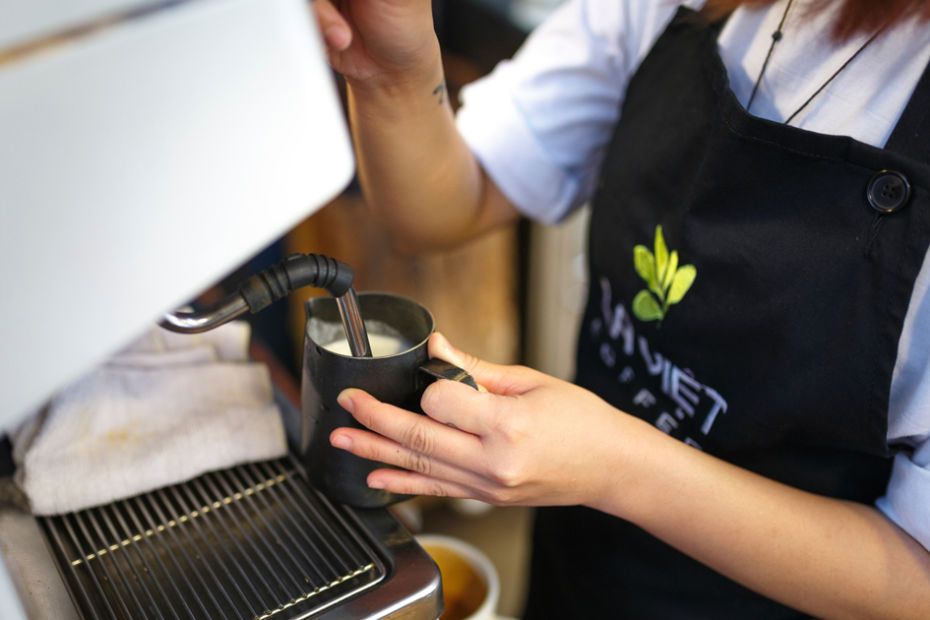One sensor or two: How IoT is helping coffee shops
- March 27, 2022
- Steve Rogerson

Steve Rogerson speaks with Sam Roberts from MPro5 about how the IoT is transforming coffee shops.
We all know the theory – you walk into a supermarket, stroll round the aisles putting stuff in your bag and then just walk out. Once, that would have led to a tap on the shoulder from a security guard, but now the money for your purchases can be taken automatically from you debit card, and all’s fine. No queues, no checkout. Magic. Or is it?
The reality is that not many shops have this ability, and those that do are often still seen as pilots, or are some of a sort of a hybrid version where you scan stuff in using your phone. And supermarkets are still worried that there are too many customers who would really look to leave without paying.
So does that mean the retail industry is not ready yet for IoT technology. Well no, because whereas the glamorous autonomous shops are hitting the headlines, many are now turning to the IoT for less sexy applications such as checking fridge temperatures and whether the loo rolls need changing. And lots of shops can benefit from this including fast-food outlets and even coffee shops.
Sam Roberts, senior director at MPro5, a UK company that makes mobile workforce management software, calls these “back-office” applications in that the customer will not even notice but will benefit anyway with safer food and cleaner toilets.
And they can lead to big savings. Let us look at the coffee shop example. His firm recently did a survey for a UK-based coffee shop chain that has around 800 outlets. The workers at these stores have to check the fridge temperatures first thing in the morning and last thing before they close as well as at intervals during the day. And some of the thermometers are not even digital but the old mercury kind.
The company estimates that takes each shop about 30 minutes every day, which in terms of wages is about £3m. OK, they are paying these people anyway, but they would be better employed looking after customers and other tasks. Plus, if the shop is really busy with long queues then checking a thermometer can often get overlooked.
Switch that to an IoT system where the fridges are monitored automatically, and you not only free up staff but you get an alert as soon as the fridge goes wrong, plus head office can monitor the whole lot centrally.
“They are now getting real-time information rather than waiting for someone to fill in a log book,” said Roberts. “Head office can see what is being done. And if the system sees a wrong fridge temperature or detects a leak, it can automatically generate a job ticket.”
The other big “back-office” application is the toilet; and no jokes please about people using it as an office. IoT sensors fitted on the doors mean that a store can keep track of how often the toilet is being used and thus plan cleaning rotas accordingly. Plus they can monitor consumables such as soap, toilet roll and sanitary product dispensers and only send someone to restock them when they need restocking.
“Some shops have schedules that say clean the toilets every two hours, for example,” said Roberts. “Now they can react on demand depending on footfall.”
Similar sensors can also monitor the shopping trolley bays and send alerts if they are running low so someone can take a trip round the car park and collect all the used ones. They can monitor equipment, such as the coffee maker, so preventive maintenance can be scheduled. And they can measure comfort levels in the store.
“We come in at the dirty end, the back office,” said Roberts. “We are doing the stuff that the customer doesn’t see, like fridge temperatures and safety elements. Yes, there is all that lovely tech up front, but we will digitise your processes, making them far smarter so you are getting lots from them.”
Most customers won’t notice when these systems are working, but they are more likely to come back for another coffee if they didn’t get a stomach upset, the temperature in the shop was right and there was toilet paper available at that critical moment.
Autonomous stores sound fun, but sometimes getting the basics right is a lot more important.




